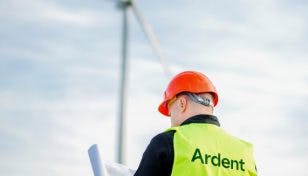Ardent appointed to lead the DCO process for Peak Cluster, the world’s largest cement decarbonisation project
Share
A leading UK and Ireland land, consent management and stakeholder engagement practice has been hired to lead the drive to achieve planning consent for a major carbon capture scheme.
Ardent, which has offices in London, Birmingham, Leeds, Warrington, Manchester, Dublin and Glasgow, has been commissioned to manage the Development Consent Order (DCO) process for Peak Cluster.
Peak Cluster is a collaboration of leading British industries consisting of four cement and lime plants in and around the Peak District, owned by Tarmac, Breedon, Buxton Lime and Holcim. The project is fully financed through equity investors including the National Wealth Fund (NWF) and private partners including cement and lime operators, Summit Energy Evolution and Progressive Energy, creating a flagship private-public partnership.
The infrastructure being planned will capture and transport carbon dioxide (CO2) which is emitted as part of the cement and lime production process.
CO2 will be captured in purpose-built facilities, situated at the cement and lime plants, andthen be transported in underground pipelines to a permanent, secure store – MNZ – under development by Peak Cluster’s partner Spirit Energy, in a former gas field deep under the seabed in the Irish Sea.
Ardent’s Consents Management Consultancy will oversee all of the workstreams in order for a DCO to be submitted and will then support in the acceptance and examination phases.
It is predicted that the scheme would prevent three million tonnes of CO2 entering the atmosphere each year.
Helen Boyle, Head of Strategic Growth for Utilities at Ardent, said it was an exciting instruction for the business.
She said: “Ardent has been involved with more than 100 DCOs since they were first introduced in the Planning Act 2008 – so no other company has the same level of experience and success when it comes to supporting and delivering them.
“We’re really looking forward to working Peak Cluster. As the world’s largest cement decarbonisation project, it will support the future of these vital foundation industries within the UK.
“All industries are having to look at how they can succeed in a low carbon economy and howthey cut the amount of CO2 they emit, especially those with higher levels of generation – such as cement and lime.
“As the greatest contributor to global CO2, the Climate Change Committee sees no credible route to net zero without carbon capture and storage being part of the solution.
“Carbon capture technology is being deployed across the globe. This development is being carefully guided by extensive research, thoughtful planning, and meaningful engagement to ensure the infrastructure needed to safely and effectively transport the captured carbon to storage is robust and reliable which is where our skills and expertise come in.”



















